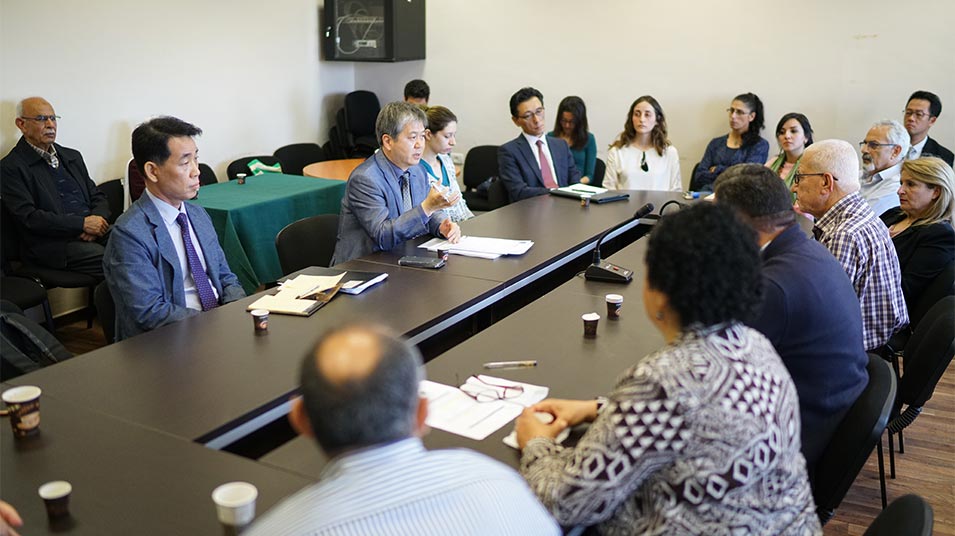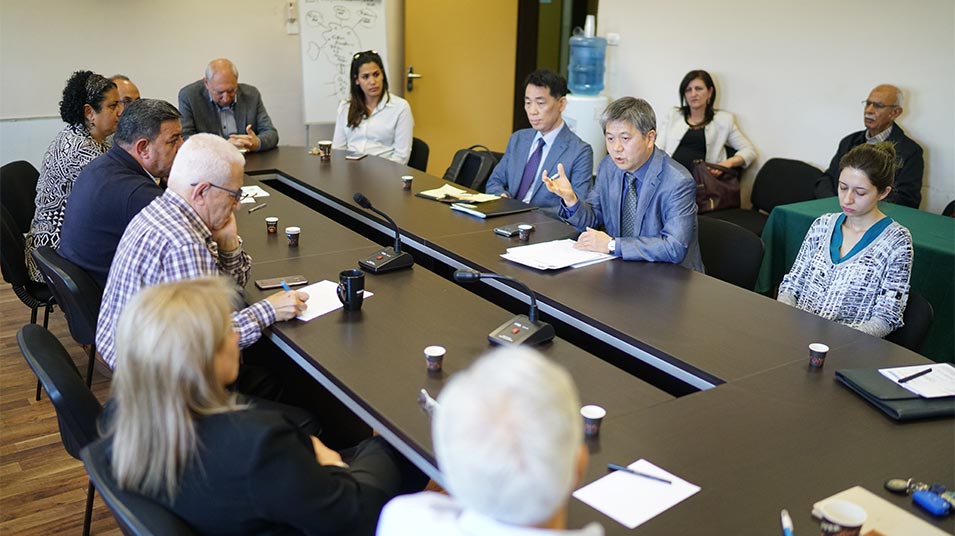South Korean economy, policy experts discuss economic development, apply lessons in Palestine
Dr. Nam-sik In, director general of the Department of American Studies at the Korea National Diplomatic Academy, and Dr. Kwon Hyung Lee, head of the Middle East and Africa Team at the Korea Institute for International Economic Policy, joined professors from the Faculty of Business and Economics at Birzeit University in a discussion of South Korea’s development experience.
The meeting, held on campus at Birzeit University on Monday, April 30, 2018, featured Head of the Representative Office of the Republic of Korea to the State of Palestine Young-sam Choi, and highlighted South Korea’s path of development, from the early 1950s, when its main exports were agricultural products, to the economic powerhouse that it is today, exporting automobiles, semiconductors, electronics, and heavy machinery.
“Since 1962, the Korean economy underwent rapid industrialization, which the country managed through a strategy of export growth. There were, however, a number of challenges in place, namely, the lack of sufficient foreign reserves, the lack of energy resources, and the lack of skilled, qualified human capital,” said Lee, tracing South Korea’s development.
“What we did to expedite the development process,” added Lee, “was increase our exports – global competition enhances the overall quality of products – bolster our relationship with energy-producing countries, and promote high-tech and heavy industry.”
Lee noted that, while some criticize the intensive export promotion strategy, it has some obvious merits, such as improving overall quality and competitiveness in the global market.
In, who specializes in foreign policy, explained the state-building process that South Korea undergone to modernize its infrastructure, thus readying the country for a new stage of industrialization.
“State building requires a number of components, such as security assurance, social integration, ideological harmonization, and institution building. Once South Korea was able to develop its higher education institutions, prop up its infrastructure, and focus on social cohesion in the country, it was able to swiftly develop and modernize its economy,” remarked In, adding that state-building goes hand-in-hand with economic growth.
The attending professors, after the visiting delegation’s brief introduction, presented them with a number of questions on the Korean experience and how it could be applied in Palestine. The questions ranged from which Palestinian industry to focus on and the role of the state in the development process, to the best method of utilizing foreign aid to advance economic development.








